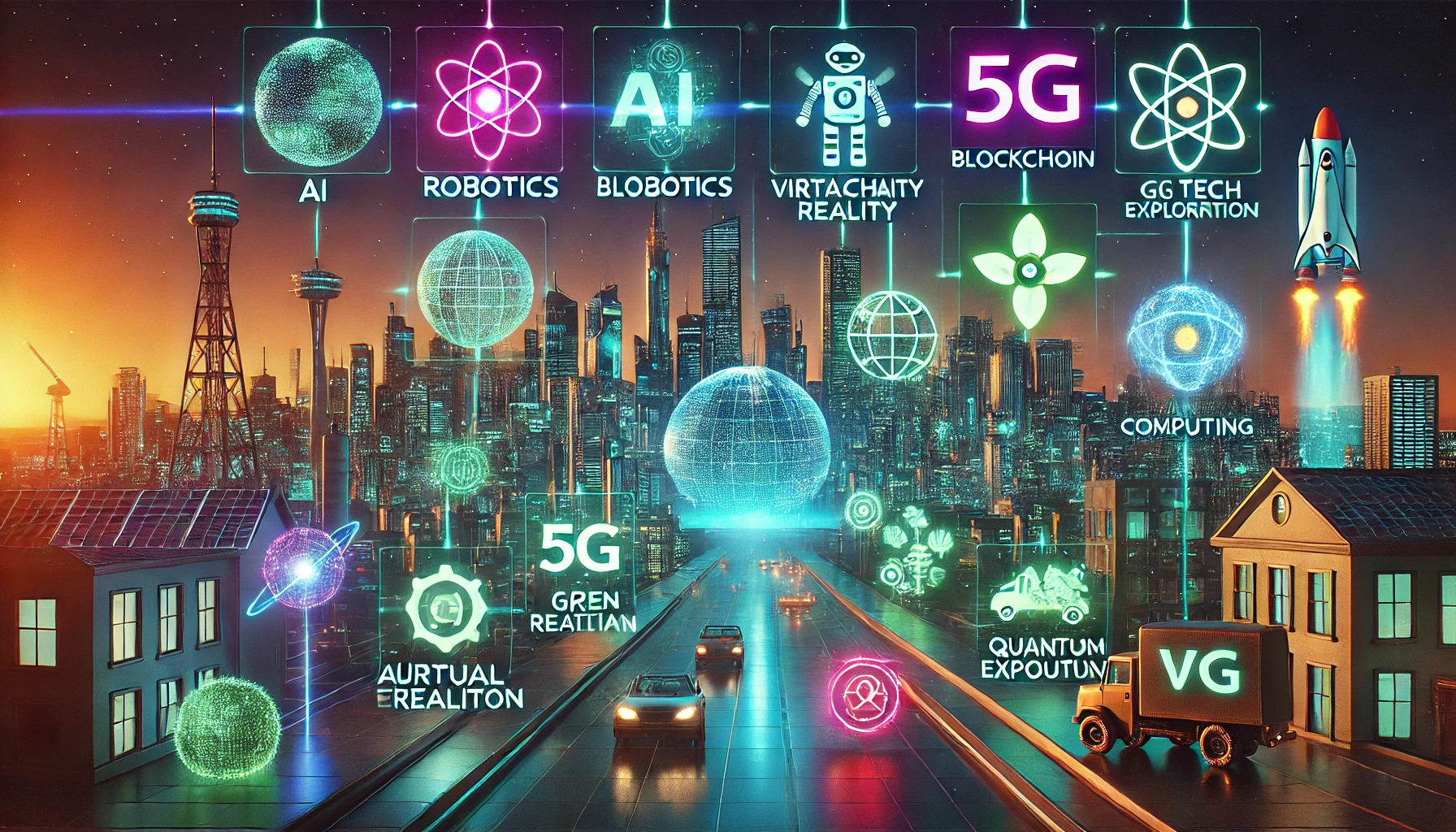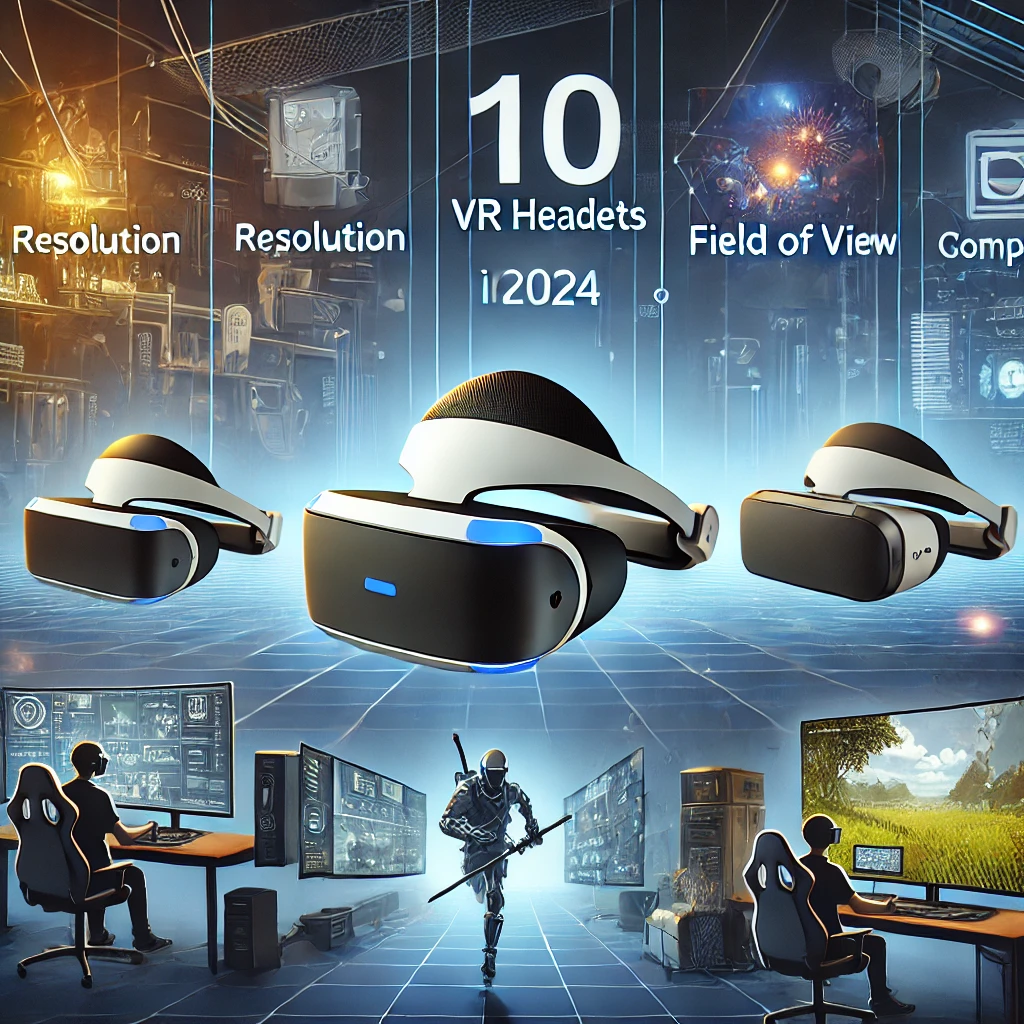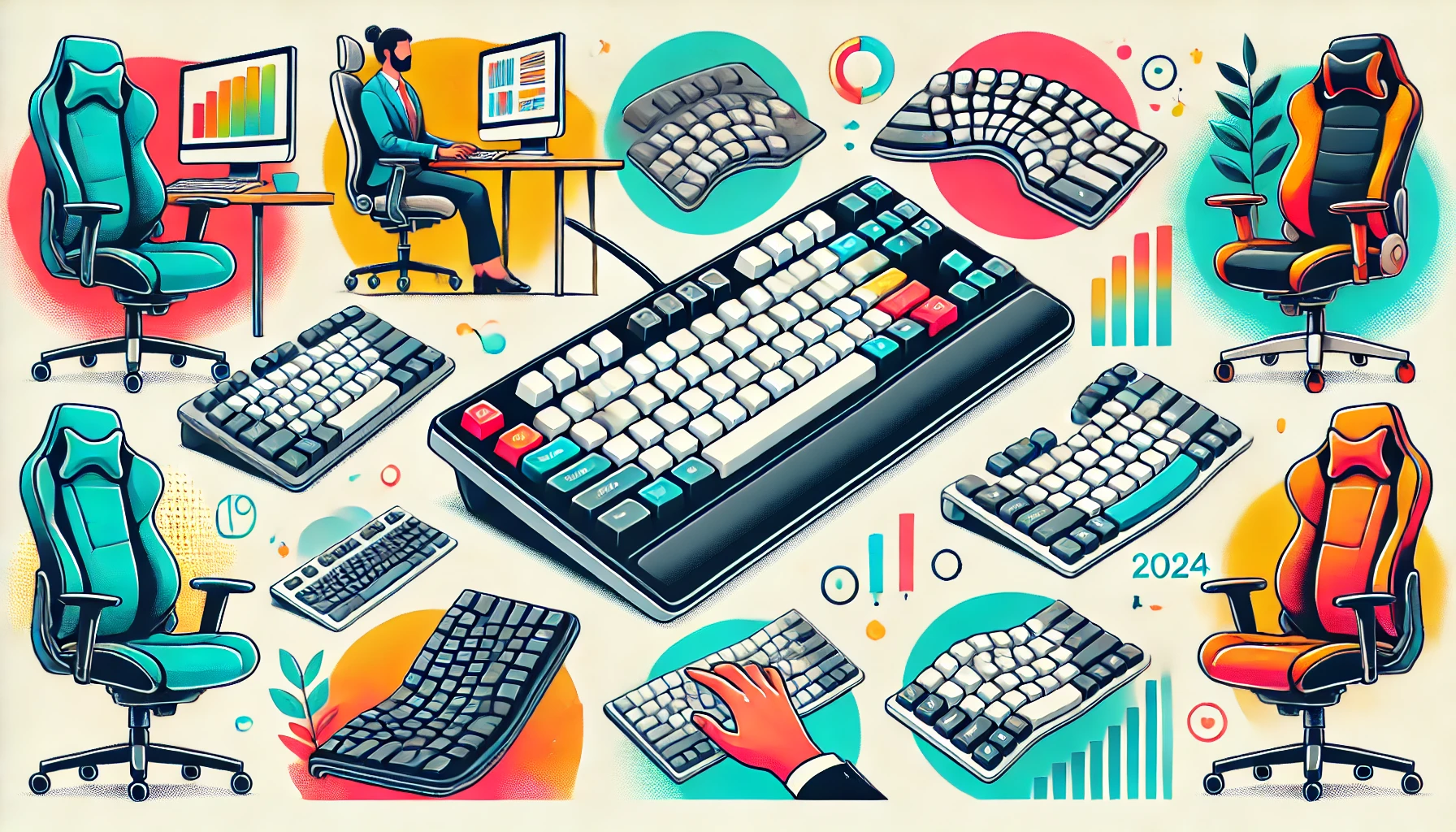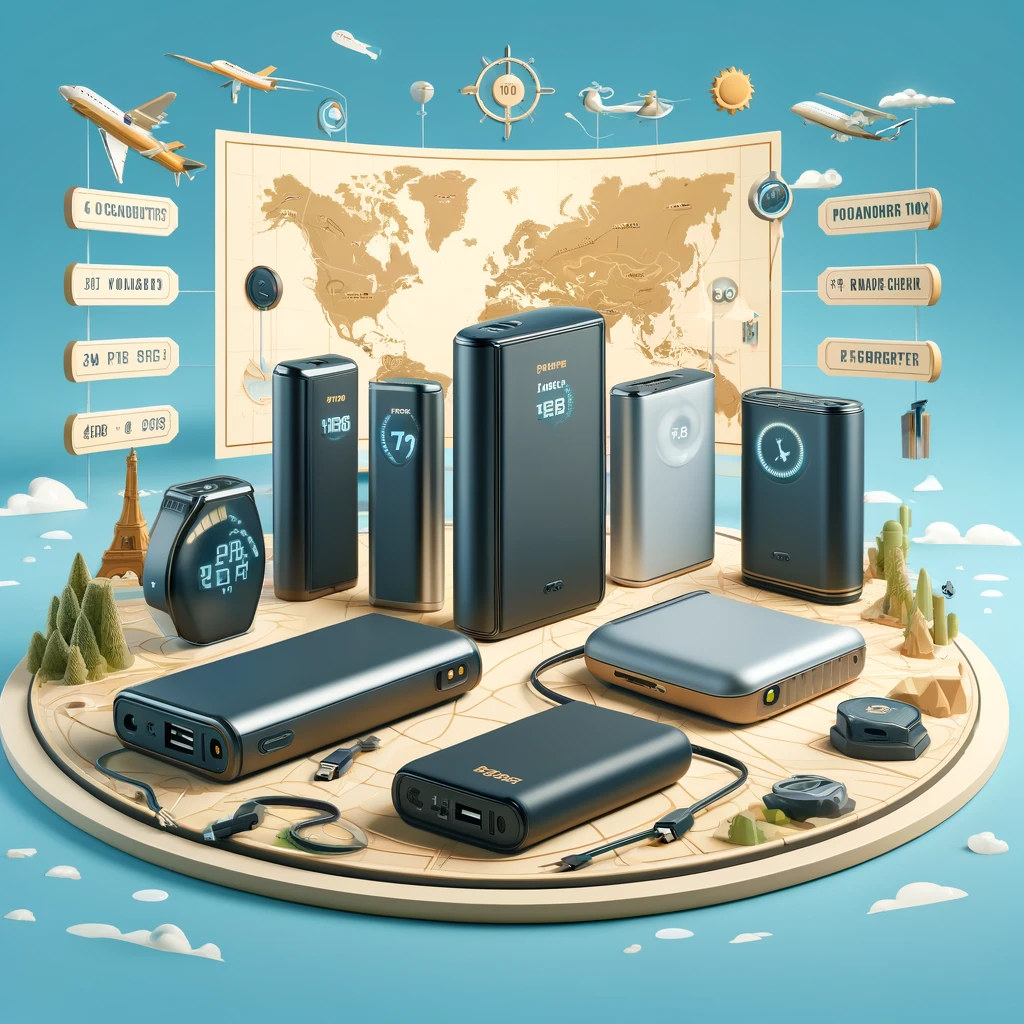Top 10 Tech Trends to Watch in 2024: Stay Ahead of the Curve
Introduction
The tech landscape is evolving at a rapid pace, bringing innovations that are transforming industries and everyday life. Staying informed about these trends is crucial for businesses, tech enthusiasts, and anyone looking to leverage technology effectively. This comprehensive guide will delve into the top tech trends for 2024, providing insights and practical applications to help you stay ahead of the curve.
| Heading | Sub-Topics |
|---|---|
| Artificial Intelligence and Machine Learning | AI in daily life, advancements in ML, AI ethics, future applications |
| Internet of Things (IoT) | Smart homes, industrial IoT, IoT security, IoT in healthcare |
| Blockchain Technology | Blockchain beyond cryptocurrency, enterprise blockchain, blockchain security |
| 5G Technology | 5G rollout, impact on industries, 5G and IoT, future of 5G |
| Augmented Reality (AR) and Virtual Reality (VR) | AR/VR in gaming, AR in retail, VR in education, future trends |
| Quantum Computing | Basics of quantum computing, current developments, potential applications |
| Cybersecurity Innovations | Latest threats, cybersecurity solutions, AI in cybersecurity, personal data protection |
| Edge Computing | Difference from cloud computing, benefits, applications in real-time data processing |
| Robotics and Automation | Robotics in manufacturing, service robots, automation in daily tasks, future outlook |
| Wearable Technology | Advances in wearable tech, healthcare applications, consumer electronics, future innovations |
| Biotechnology and Health Tech | Biotech breakthroughs, health tech innovations, personalized medicine, wearable health devices |
| Autonomous Vehicles | Current state of AVs, regulatory challenges, future prospects, impact on society |
| Sustainable Tech Innovations | Green energy tech, sustainable manufacturing, tech in climate change mitigation |
| Smart Cities | Components of smart cities, examples, challenges, future trends |
| Natural Language Processing (NLP) | Advances in NLP, applications, impact on industries, future developments |
| Tech in Education | Edtech tools, remote learning innovations, AI in education, future of learning |
| Fintech Innovations | Digital banking, blockchain in finance, AI in finance, future of fintech |
| Cloud Computing Advancements | Evolution of cloud computing, hybrid clouds, cloud security, future trends |
| 3D Printing | Current uses, advancements, impact on manufacturing, future possibilities |
| Human-Computer Interaction (HCI) | Evolution of HCI, applications, user experience design, future trends |
Artificial Intelligence and Machine Learning
Artificial Intelligence (AI) and Machine Learning (ML) have moved from science fiction to daily life, influencing a range of sectors from healthcare to finance. AI’s ability to process vast amounts of data and make intelligent decisions is revolutionizing industries.
AI in Daily Life
From virtual assistants like Siri and Alexa to personalized recommendations on Netflix, AI has seamlessly integrated into our everyday activities. These technologies are designed to simplify tasks and enhance user experiences.
Advancements in ML
Machine Learning, a subset of AI, involves algorithms that allow systems to learn and improve from experience. Recent advancements include more sophisticated neural networks and enhanced natural language processing capabilities, enabling more accurate predictions and insights.
AI Ethics
As AI grows, ethical considerations are paramount. Issues such as bias in algorithms, privacy concerns, and the potential for job displacement are critical discussions in the tech community. Ensuring ethical AI involves creating transparent, fair, and accountable systems.
Future Applications
The future of AI holds endless possibilities. From autonomous vehicles to predictive analytics in healthcare, AI’s potential applications are vast. Innovations such as AI-driven drug discovery and smart infrastructure are on the horizon, promising to transform how we live and work.
Internet of Things (IoT)
The Internet of Things (IoT) connects everyday devices to the internet, enabling them to send and receive data. This interconnected network is revolutionizing various sectors, enhancing efficiency and creating new opportunities.
Smart Homes
IoT is making homes smarter and more efficient. Devices like smart thermostats, security systems, and appliances can be controlled remotely, providing convenience and energy savings.
Industrial IoT
In the industrial sector, IoT enables predictive maintenance, improves supply chain management, and enhances operational efficiency. Connected sensors and devices provide real-time data, allowing for proactive management and reduced downtime.
IoT Security
With the proliferation of IoT devices, security is a major concern. Ensuring the security of connected devices and protecting them from cyber threats is critical. Robust encryption, regular updates, and secure protocols are essential for safeguarding IoT ecosystems.
IoT in Healthcare
Healthcare is experiencing a transformation with IoT. Connected devices monitor patients in real-time, providing valuable data for diagnostics and treatment. Remote monitoring and telehealth are becoming more prevalent, improving patient outcomes and accessibility to care.
Blockchain Technology
Blockchain technology, known for powering cryptocurrencies like Bitcoin, is finding applications beyond finance. Its decentralized, transparent, and secure nature is making it an attractive solution for various industries.
Blockchain Beyond Cryptocurrency
While blockchain’s initial fame came from cryptocurrencies, its potential extends far beyond. Industries like supply chain management, healthcare, and even voting systems are exploring blockchain for its ability to provide secure, transparent, and immutable records.
Enterprise Blockchain
Businesses are increasingly adopting blockchain to streamline operations, enhance security, and reduce costs. Enterprise blockchains are tailored to meet specific organizational needs, offering a private, permissioned network with higher scalability and efficiency.
Blockchain Security
Security is a core strength of blockchain technology. Its decentralized nature makes it resilient against hacks and fraud. However, as the technology evolves, ensuring robust security measures remains a priority to protect data and transactions.
Future of Blockchain
The future of blockchain is promising, with potential applications in numerous fields. Innovations like smart contracts, decentralized finance (DeFi), and blockchain-based identity verification are set to revolutionize traditional systems, offering more efficient and secure solutions.
5G Technology
5G technology is not just an upgrade from 4G; it’s a game-changer that promises to transform connectivity with higher speeds, lower latency, and greater capacity. Its impact will be felt across various sectors, enabling new applications and innovations.
5G Rollout
The global rollout of 5G is accelerating, with major telecom providers expanding their networks. This new generation of mobile technology offers unprecedented speeds, capable of supporting advanced applications and services.
Impact on Industries
5G is set to revolutionize industries such as healthcare, manufacturing, and entertainment. Its low latency and high bandwidth enable real-time applications like remote surgery, automated industrial processes, and immersive virtual reality experiences.
5G and IoT
The combination of 5G and IoT will drive the next wave of innovation. With 5G’s capabilities, IoT devices can communicate faster and more reliably, unlocking new possibilities in smart cities, autonomous vehicles, and beyond.
Future of 5G
Looking ahead, 5G will continue to evolve, with advancements like network slicing and massive MIMO (Multiple Input, Multiple Output) enhancing its capabilities. The ongoing development of 5G standards will further expand its potential applications and impact.
Augmented Reality (AR) and Virtual Reality (VR)
AR and VR are no longer just for gaming; they’re becoming integral to various industries, offering immersive experiences and new ways of interacting with the digital world.
AR/VR in Gaming
Gaming has been the most obvious application of AR and VR, offering players immersive experiences and new ways to engage with virtual worlds. These technologies are pushing the boundaries of interactive entertainment.
AR in Retail
Retailers are leveraging AR to enhance the shopping experience. From virtual try-ons to interactive product displays, AR is transforming how consumers shop, providing more personalized and engaging experiences.
VR in Education
VR is revolutionizing education by providing immersive learning experiences. Virtual field trips, 3D anatomy lessons, and interactive history lessons are making learning more engaging and effective.
Future Trends
The future of AR and VR holds exciting possibilities. Advancements in hardware, such as lighter and more comfortable headsets, along with improved software capabilities, will continue to expand their applications and accessibility.
Quantum Computing
Quantum computing represents a paradigm shift in computational power, promising to solve problems that are currently intractable for classical computers.
Basics of Quantum Computing
Quantum computing leverages the principles of quantum mechanics to process information in fundamentally different ways. Quantum bits, or qubits, can exist in multiple states simultaneously, allowing for vastly more powerful computations.
Current Developments
Major tech companies and research institutions are making significant strides in developing quantum computers. While fully functional, large-scale quantum computers are still years away, progress in areas like quantum supremacy is promising.
Potential Applications
The potential applications of quantum computing are vast, ranging from drug discovery and material science to cryptography and optimization problems. Quantum computers could revolutionize fields that require complex computations and large-scale simulations.
Cybersecurity Innovations
As technology advances, so do the threats to cybersecurity. Staying ahead of these threats requires continuous innovation and the adoption of new security measures.
Latest Threats
Cyber threats are becoming more sophisticated, with attacks such as ransomware, phishing, and advanced persistent threats (APTs) posing significant risks. Staying informed about the latest threats is crucial for effective defense.
Cybersecurity Solutions
Innovative solutions are emerging to combat cyber threats,



